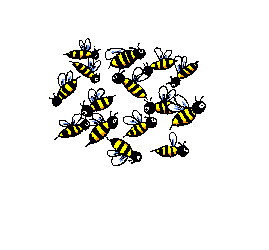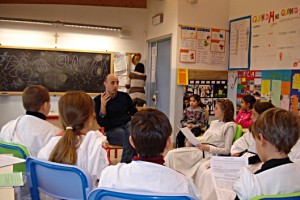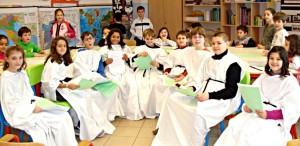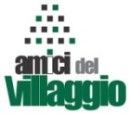To prepare to become electorate we have been working on the words that accompanied our new enterprise active citizens.
Let's start with…
Seat: [sèg-gio] s.m. (pl. -provide)
- Seat reserved for kings, dignitaries, people elected to high office; in senso fig., the degree and dignity attached: s. episcopal, Pontifical, imperial
- Seat of officials, MPs, dignitaries in the place where they supervise: i s. Members of the Opposition
- minutely. Each place of a collegiate body and elective attributed to representatives of political forces after the elections: assignment of s.
- Commission, which governs the conduct of operations and the counting of votes in a polling station; the place where the election takes place
In Italia – Telling the 'article 1 of the Constitution - The people are sovereign, “Sovereignty belongs to the people, that exercised in the manner and within the limits of the Constitution. ".
The seats in our schools expressed the place where they carried out the election of candidates, the choice of programs and where the tellers performed various tasks:
- identify the voter and to put the signature in the register of vote,
- stamp the voter,
- giving the card,
- after the vote, check that the card was inserted in the urn,
- scrutinare (at the end of voting),
- compile the minutes of the.
vote: [vó-to] s.m.
Act with which it manifests its will and individual choice in electing someone (the candidate or the candidate) or decide something (the program)
We headed to the polling station having in mind our preferences: us older guys preferences on candidates; children in first, second and third, expressed their preference programs, choosing the color of the list (in our complex was orange or blue, the colors of the classrooms of classes IV and V.
Choose it was the hardest thing. Our sympathy and solidarity goes to ALL, for having brought into play to represent, for taking the time and energy to achieve this feat!!!
According to the’article 48 of the Constitution the voting has four characteristics:
staff: I have to be there personally to express;
equal: “one man/ woman, one vote” and all the votes are equally effective: There are no votes that are worth more than others.
free: the citizen has the right to freely vote their preference; the person who goes to vote should not be put under pressure, coercion or threats that may affect his choice;
secret: to respect freedom of vote, during the operation of vote, no one has to see or control conducting; So we've set up our "space cab" voting.
We have taken into account that the vote must also be sincere, in the sense that the preference goes to the program, alle idee, their feasibility; goes to the person who is able to engage more than others and, in the Council, will be able to discuss the proposals, argomentarle, negoziarle and take with the other, from time to time, the best decision.
ballot: s. m. [dal lat. late scrutiny «Frugamento, search », the. of search "Scrutinize"].
Is the set of counting operations, at the end of voting, the preferences expressed. The President read the preference, at the same time a scrutinizing and a scrutineer annotated - to verify this that there were no errors in recording; third scrutineer who controlled the operations correctly avvenissero.
The tellers are committed to maintaining the confidentiality of the outcome of the vote. The results are arrived at school the following Monday by letter and were announced in plenary, at the end of the.
On the same day, List of elected members appeared on the site.
Girls and Boys of the Fifth Class “G. Ancillotto”



 CCDR Martellago
CCDR Martellago JRC Rosà
JRC Rosà CCRR Mogliano
CCRR Mogliano AIART
AIART Listen,,it,It is a radio that caters to all and all,,it,female students and students,,it,senior executives,,it,teachers,,it,school staff,,it,It stands as a place of knowledge,,it,of exchange,,it,but also of growth and education for girls and boys,,it
Listen,,it,It is a radio that caters to all and all,,it,female students and students,,it,senior executives,,it,teachers,,it,school staff,,it,It stands as a place of knowledge,,it,of exchange,,it,but also of growth and education for girls and boys,,it BY
BY Sede CCRR
Sede CCRR Child Friendly Cities
Child Friendly Cities Museum of Reclamation
Museum of Reclamation Peggy Guggenheim
Peggy Guggenheim Wonders of Cities
Wonders of Cities 31 October – 3-4 November 1918
31 October – 3-4 November 1918 Berlin Wall
Berlin Wall Il Sole Junior
Il Sole Junior Atlas
Atlas City of Heraclea
City of Heraclea Radio Magica
Radio Magica Trail
Trail Unde Radio
Unde Radio Safe Internet
Safe Internet Children's Parliament
Children's Parliament SMS
SMS L'U.E. With European and PER NOI
L'U.E. With European and PER NOI Learn English!
Learn English! Reminder
Reminder A dust' of Italian L2
A dust' of Italian L2